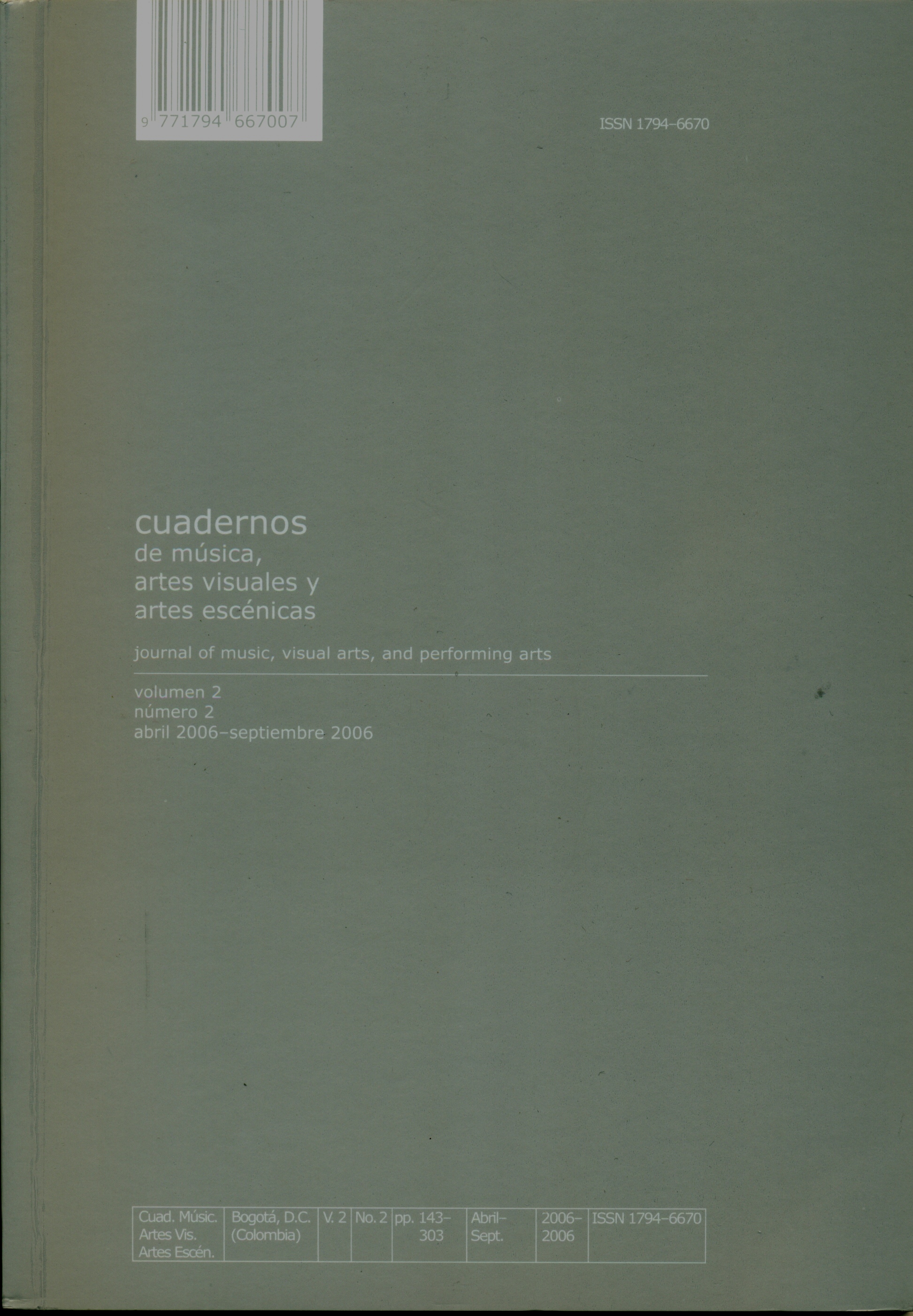Resumen
El análisis de la reconocida obra de la música popular cubana titulada Guantanamera, mediante la investigación de las bibliografías, fonogramas y partituras que documentan la génesis de dicha pieza, revela al verdadero autor de la melodía con la que se cantan los versos de José Martí en la mencionada canción y demuestra las causas que provocaron la incertidumbre acerca de la autoría de dicha melodía.Con esta investigación concluyo que la melodía con la que se cantan los versos de José Martí en la pieza Guantanamera es una creación del compositor hispano–cubano Julián Orbón (1925–1991) y no de Joseíto Fernández como se ha repetido acríticamente. Igualmente, concluyo que la melodía de la tonada conocida con el título de Guajira guantanamer, popularizada con textos en décimas improvisadas y adjudicada a Joseíto Fernández, es bien diferente a la melodía utilizada por Orbón y popularizada por Pete Seeger para cantar los versos de Martí. Por causas políticas el Estado Cubano ha difundido el desacierto de que el autor de la melodía con la que se cantan los versos de José Martí en la pieza titulada Guantanamera es Joseíto Fernández y que Julián Orbón solamente adaptó los versos de Martí a la melodía de Fernández.Esta revista científica se encuentra registrada bajo la licencia Creative Commons Reconocimiento 4.0 Internacional. Por lo tanto, esta obra se puede reproducir, distribuir y comunicar públicamente en formato digital, siempre que se reconozca el nombre de los autores y a la Pontificia Universidad Javeriana. Se permite citar, adaptar, transformar, autoarchivar, republicar y crear a partir del material, para cualquier finalidad, siempre que se reconozca adecuadamente la autoría, se proporcione un enlace a la obra original y se indique si se han realizado cambios. La Pontificia Universidad Javeriana no retiene los derechos sobre las obras publicadas y los contenidos son responsabilidad exclusiva de los autores, quienes conservan sus derechos morales, intelectuales, de privacidad y publicidad.
El aval sobre la intervención de la obra (revisión, corrección de estilo, traducción, diagramación) y su posterior divulgación se otorga mediante una licencia de uso y no a través de una cesión de derechos, lo que representa que la revista y la Pontificia Universidad Javeriana se eximen de cualquier responsabilidad que se pueda derivar de una mala práctica ética por parte de los autores. Como consecuencia de la protección brindada por la licencia de uso, la revista puede publicar retractaciones o corregir la información ya publicada. La publicación de contenidos en esta revista no representa regalías para los contribuyentes.


